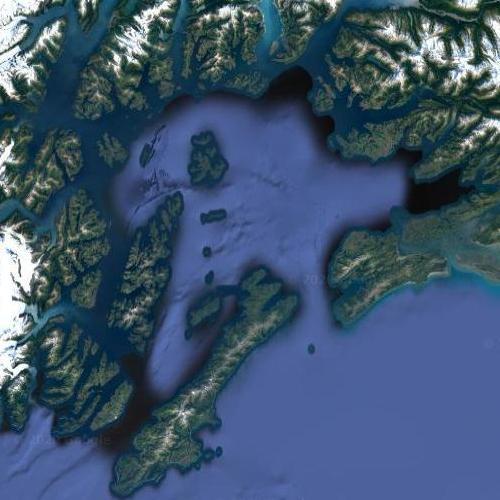The most famous event in the history of March may well be the Ides of March, when Caesar was assassinated by his friends and peers on his way to the Senate. There are many other important historical events that happened in March; let’s check some of them out.
March 1: Seven Indictments in the Watergate Scandal
The Watergate scandal, which eventually took down the entire Nixon administration, was a story that captivated the nation for two years.
On March 1, 1974, seven former Nixon administration officials were arrested in connection with the June 17, 1972 break in at the Watergate Hotel and the subsequent coverup led by the president.
March 5: Winston Churchill Warns of “Iron Curtain”
Winston Churchill was Britain’s Prime Minister during much of World War II, and it was his stubborn will that helped keep the island nation free when the rest of Europe was falling to the Nazis. However, after the war, he failed to win reelection, and was understandably upset.
At the invite of US President Harry Truman, Churchill gave a speech at Westminster College in Fulton, Missouri on March 5, 1946. It was here he warned of an “Iron Curtain” descending across Europe and warning of the need to stay vigilant against the USSR, in essence predicting the Cold War of the next fifty years.
In honor of Churchill’s visit and his immense impact on global politics, the College has a museum dedicated to the world leader.
March 6: Fall of the Alamo
Before it was part of the United States, Texas was a part of Mexico, but immigrants from the United States wanted it to become an independent country.
After the Texans took the upper hand in the struggle, Mexican General Santa Anna fought to take back the territory. A siege battle took place in San Antonio, where Santa Anna and his troops attacked the Alamo, killing all or nearly all the men garrisoned there, between 160 and 270 in total.
While the Mexican troops won the battle, the massacre became a rallying cry across Texas. A few weeks later, as the final battle for independence was fought, Texan troops shouted “Remember the Alamo” as they defeated the Mexicans in a rout.
March 12: Bermuda Colonized by British
While the Spanish were the first Europeans to find the uninhabited island, Bermuda was not settled until a British ship, the Sea Venture, capsized off it’s shores on its way to the Virginia colony on March 12, 1609.
The island nation is still part of the British Commonwealth, and is a prime beach, diving, and golf destination.
Sandy beaches aren’t the only draw; the financial center of Hamilton is an international banking hub, making Bermuda one of the per capita wealthiest countries in the world.
March 15: Assassination of Julius Caesar
After seizing power for himself, causing the fall of the Roman Republic, Julius Caesar was a hero among the poor but a villain among the elite. They resented his political and social reforms and consolidation of power. A plan to kill him was hatched among as many as fifty Roman senators.
As he neared the entrance to the Senate, he was stabbed more than 23 times by multiple men. As he lay dying, Julius Caesar said “Et tu, Brute?” meaning “You too, Brutus?” because his protege, Marcus Brutus, was among the assassins.
A soothsayer is rumored to have told Caesar that harm would befall him by the end of the day, saying “Beware the Ides of March”. That phrase is still spoken today, and March 15 is often viewed as a day of ill luck or misfortune.
March 24: Exxon Valdez
Exxon Valdez, a shipping tanker, was carrying oil from a terminal in Valdez, Alaska. Due to a miscommunication and poor navigational equipment, the ship hit the Bligh Reef in the early morning of March 24, 1989. Many accusations about the captain’s drinking contributing to the crash were made, but could not be proven.
The tanker spilled more than 250,000 barrels, or nearly 11 million gallons, of crude oil in the Prince William Sound. Its remote location made cleanup difficult. Less than ten percent of the oil was ever cleaned up or removed. Thousands of miles of coastline still show the effects of the spill. Hundreds of thousands of birds were killed, along with thousands of otters, and hundreds of bald eagles, orcas, and other animals. Untold numbers of salmon, other fish and marine wildlife were also killed.
Until the Deepwater Horizon disaster, it was the largest man-made environmental disaster in US history.
March 31: Eiffel Tower Opens in Paris
The Eiffel Tower has come to represent Paris, and France, to the world; but the architectural marvel is just over 130 years old. On March 31, 1889, the Eiffel Tower opened to the public and the world as part of the Paris Universal Exposition. In spite of predicted negative opinions, it was an immediate sensation. Each night the tower was lit by gas lamps, and people from around the world were captivated by the tower glowing in the night sky. And the world is just as enamored with the Eiffel Tower today. The tower is one of the most recognizable landmarks in the world.
March is full of history; some tragic and some wonderful. It’s good to look back and think that, while the world is constantly changing, it’s often changing for the better.







